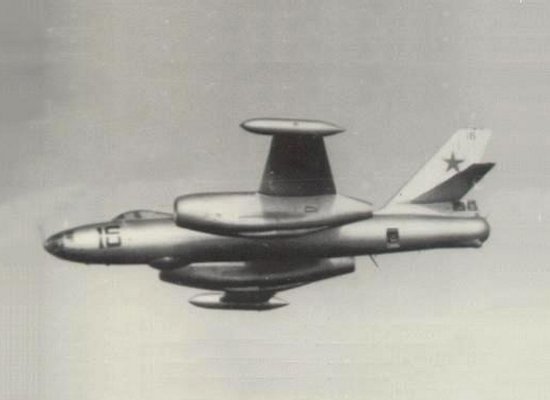...The cables about North Korea—some emanating from Seoul, some from Beijing, many based on interviews with government officials, and others with scholars, defectors and other experts—are long on educated guesses and short on facts, illustrating why their subject is known as the Black Hole of Asia. Because they are State Department documents, not intelligence reports, they do not include the most secret American assessments, or the American military’s plans in case North Korea disintegrates or lashes out.
They contain loose talk and confident predictions of the end of the family dynasty that has ruled North Korea for 65 years. Those discussions were fueled by a rash of previously undisclosed defections of ranking North Korean diplomats, who secretly sought refuge in the South. But they were also influenced by a remarkable period of turmoil inside North Korea, including an economic crisis set off by the government’s failed effort to revalue its currency and sketchy intelligence suggesting that the North Korean military might not abide the rise of Mr. Kim’s inexperienced young son, Kim Jong-un, who was recently made a four-star general despite having no military experience.
The cables reveal that in private, the Chinese, long seen as North Korea’s last protectors against the West, occasionally provide the Obama administration with colorful assessments of the state of play in North Korea. Chinese officials themselves sometimes even laugh about the frustrations of dealing with North Korean paranoia. When James B. Steinberg, the deputy secretary of state, sat down in September 2009 with one of China’s most powerful officials, Dai Bingguo, state councilor for foreign affairs, Mr. Dai joked that in a recent visit to North Korea he “did not dare” to be too candid with the ailing and mercurial North Korean leader. But the Chinese official reported that although Kim Jong-il had apparently suffered a stroke and had obviously lost weight, he still had a “sharp mind” and retained his reputation among Chinese officials as “quite a good drinker.” (Mr. Kim apparently assured Mr. Dai during a two-hour conversation in Pyongyang, the capital, that his infirmities had not forced him to give up alcohol.)
But reliable intelligence about Mr. Kim’s drinking habits, it turns out, does not extend to his nuclear program, about which even the Chinese seem to be in the dark. On May 13, 2009, as American satellites showed unusual activity at North Korea’s nuclear test site, officials in Beijing said they were “unsure” that North Korean “threats of another nuclear test were serious.” As it turns out, the North Koreans detonated a test bomb just days later. Soon after, Chinese officials predicted that negotiations intended to pressure the North to disarm would be “shelved for a few months.” They have never resumed...In June 2009, at a lunch in Beijing shortly after the North Korean nuclear test, two senior Chinese Foreign Ministry officials reported that China’s experts believed “the enrichment was only in its initial phases.” In fact, based on what the North Koreans revealed this month, an industrial-scale enrichment plant was already under construction. It was apparently missed by both American and Chinese intelligence services.
...But the cables also reveal that the South Koreans see their strategic interests in direct conflict with China’s, creating potentially huge diplomatic tensions over the future of the Korean Peninsula. The South Koreans complain bitterly that China is content with the status quo of a nuclear North Korea, because they fear that a collapse would unleash a flood of North Korean refugees over the Chinese border and lead to the loss of a “buffer zone” between China and the American forces in South Korea. At one point, Ambassador Stephens reported to Washington, a senior South Korean official told her that “unless China pushed North Korea to the ‘brink of collapse,’ ” the North would refuse to take meaningful steps to give up its nuclear program. Mr. Chun, now the South Korean national security adviser, complained to Ambassador Stephens during their lunch that China had little commitment to the multination talks intended to force North Korea to dismantle its nuclear arsenal. The Chinese, he said, had chosen Wu Dawei to represent Beijing at the talks. According to the cable, Mr. Chun called Mr. Wu the country’s “ ‘most incompetent official,’ an arrogant, Marx-spouting former Red Guard who ‘knows nothing about North Korea, nothing about non-proliferation.’ ”
But the cables show that when it comes to the critical issue of succession, even the Chinese know little of the man who would be North Korea’s next ruler: Kim Jong-un. As recently as February 2009, the American Consulate in Shanghai—a significant collection point for intelligence about North Korea—sent cables reporting that the Chinese who knew North Korea best disbelieved the rumors that Kim Jong-un was being groomed to run the country. Several Chinese scholars with good contacts in the North said they thought it was likely that “a group of high-level military officials” would take over, and that “at least for the moment none of KJI’s three sons is likely to be tapped to succeed him.” The oldest son was dismissed as “too much of a playboy,” the middle son as “more interested in video games” than governing. Kim Jong-un, they said, was too young and inexperienced. But within months, a senior Chinese diplomat, Wu Jianghao, was telling his American counterparts that Kim Jong-il was using nuclear tests and missile launching as part of an effort to put his third son in place to succeed him, despite his youth. “Wu opined that the rapid pace of provocative actions in North Korea was due to Kim Jong-il’s declining health and might be part of a gambit under which Kim Jong-il would escalate tensions with the United States so that his successor, presumably Kim Jong-un, could then step in and ease those tensions,” the embassy reported back to Washington in June 2009.







